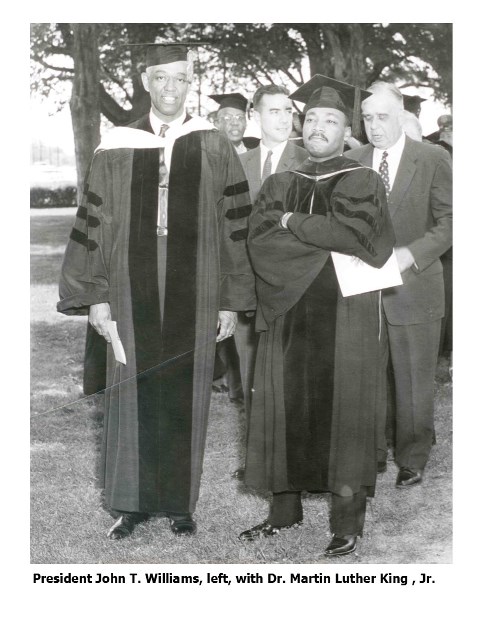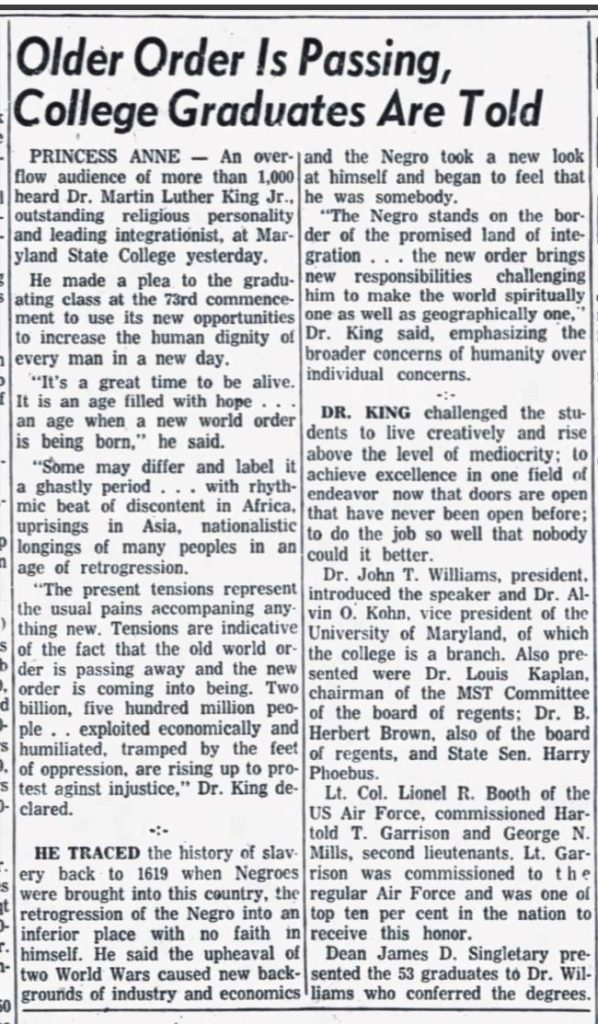
The Rev. Martin Luther King Jr. was a 30-year-old Baptist minister in the spring of 1959. He was perhaps best known as one of the leading advocates of the Montgomery, Ala. bus boycott that four years earlier made Rosa Parks a household name and became a seminal moment in the nation’s Civil Rights movement.
King was a popular attraction on the speaking circuit that took him to churches and historically black colleges, where people flocked to hear his message challenging the status quo of segregation that pervaded much of American society – especially in the Deep South.
So it was no surprise King accepted an invitation from Maryland State College to deliver its 1959 commencement address. A year earlier, he appeared at Morgan State College in Baltimore, which awarded him an honorary degree.
It was not unusual for Maryland State graduation exercises in those days to be held on a Sunday – in this case, May 24. The venue — now a parking lot — was the Kiah gymnasium, a popular multi-purpose building adjacent to “Maryland Hall,” the current (John T. Williams) administration building.
King was well-known, but news coverage of his Princess Anne visit was sparse. An 11-paragraph article about his appearance at commencement was printed in the May 25th afternoon edition of The Salisbury Times. No photos accompanied the article on page 8.

The big news in the local newspaper that Monday was the death of John Foster Dulles, the U.S. Secretary of State who was the architect of President Dwight Eisenhower’s foreign policy as the Cold War with the old Soviet Union grew increasingly tense.
A handful of photos from King’s visit survive in the University of Maryland Eastern Shore’s archives and occasionally are used for special occasions. Based on the attire of those pictured standing outside Kiah gym, the weather that day appeared to be sunny and pleasant.
The newspaper described King in the article’s first sentence as an “outstanding religious personality and leading integrationalist.”
The article estimated the crowd size at “more than 1,000,” and since the newspaper reported only 53 degrees were awarded, many in the audience obviously came to hear King.
No recording or any copy of his speech is known to exist. The newspaper article includes a quote from King invoking his signature “promised land” message.
A year after King spoke in Princess Anne, Mary Fair Burks, one of his bus-boycott collaborators in Montgomery, accepted an appointment to the faculty at Maryland State, where she taught English for 26 years before retiring in 1986.
In February 1978, Professor Burks was instrumental arranging a visit to the campus by King’s widow, Coretta, which resulted in a front-page article and photos in Salisbury’s daily newspaper.

